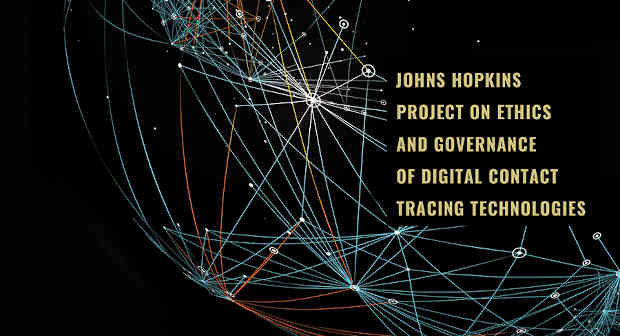Report Released on Digital Contact Tracing to Aid Covid-19 Response
Johns Hopkins University released a report on Tuesday (May 26) to help government, technology developers, businesses, institutional leaders, and the public make responsible decisions around use of digital contact tracing technologies (DCTT), including smartphone apps and other tools, to fight Covid-19.
Digital Contact Tracing for Pandemic Response – a report led by the Berman Institute for Bioethics in collaboration with the Center for Health Security at Johns Hopkins, as well as leading experts worldwide – highlights the ethical, legal, policy, and governance issues that must be addressed as DCTT are developed and implemented.
The report’s primary conclusions and recommendations advise that privacy should not outweigh public health goals and other values; that big technology companies should not unilaterally set terms when such broad public interests are at stake; and that decisions about the technology and its uses will have to be constantly updated as new information becomes available.
| Download All Issues of Covid Health Bulletin | ||
| April 16-30, 2020 | May 1-15, 2020 | May 16-31, 2020 |
As officials in many countries strive to find a balance between respecting civil liberties and controlling the pandemic, the report offers guidance for leaders as they consider deployment and use of these technologies, as well as the data they collect, store, and share.
“As we move forward, we must strike a balance between privacy and values like equity, choice, economic well-being, and solidarity,” said Jeffrey Kahn, Ph.D., MPH, director of the Johns Hopkins Berman Institute for Bioethics.
“Too much emphasis on privacy could severely limit the ability to gather information that is critical for effective and efficient contact tracing to help beat the pandemic, and so the full range of interests and values of the public must drive this conversation—and not just those asserted by tech companies.”
The report is the result of a rapid research and expert consensus effort led by a group of leaders in bioethics, health security, public health, technology, engineering, public policy, and law.














